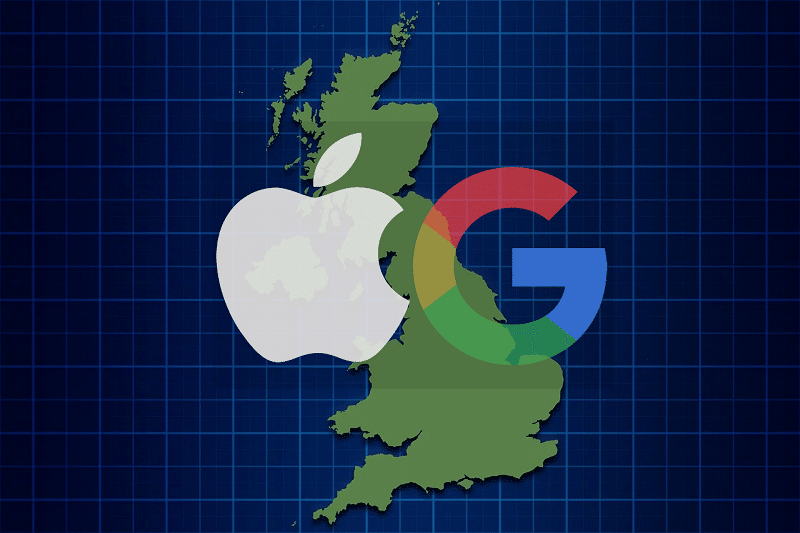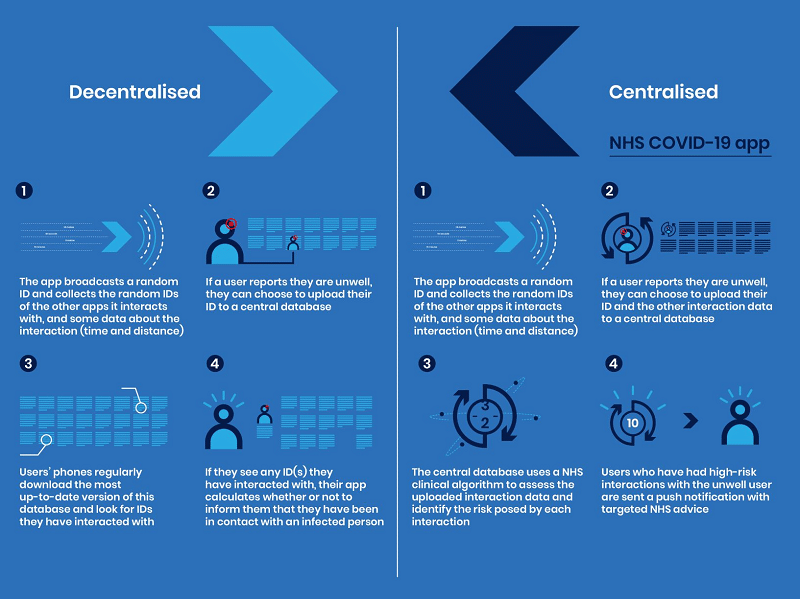
The UK government is building a second smartphone app to track the spread of COVID-19, after the first app currently being tested in the Isle of Wight faced criticism over its effectiveness.
Built by the NHS, the new application will incorporate technology provided by Google and Apple that is more compatible with the most commonly used smartphones.
The second app is being made “in parallel”, with Matthew Gould, head of NHSX, giving the “go-ahead” to the new project las week. The first NHSX app is said to collect more data in a central database.
More than 40,000 people on the Isle of Wight have been testing the NHSX app for a week. Many residents have reported problems such as difficulties downloading and even receiving false alerts.
The NHS has reportedly been facing pressure within the government and the media over the first app’s issues, including ethical problems and battery life.
The NHS’ contact tracing system currently being tested in the first NSHX app stores anonymised data about COVID-19-infected individuals and their contacts in a central database, while Google and Apple’s approach handles the data at a system level, decentralising that data.

Apple and Google expect to release the first version of their contact tracing system, via a software update, in mid-May.
At the moment, the NHS contact tracing app stores anonymised data about people infected with the coronavirus, plus their contacts, in a central database. Advocates have argued that this is vital for clearly identifying patterns of infection.
Google and Apple’s app, by contrast, is mostly decentralised and prevents the gathering of additional data, such as local, that could be used to identify people.
The UK is far from the only nation to shift direction. Germany recently switched from using its first app to using a second one more compatible with standardised smartphone systems.
Meanwhile, France has publicly opposed the limitations on options and access to data that the standard Google-Apple systems impose on countries. It will launch its own, in-house system next week.
